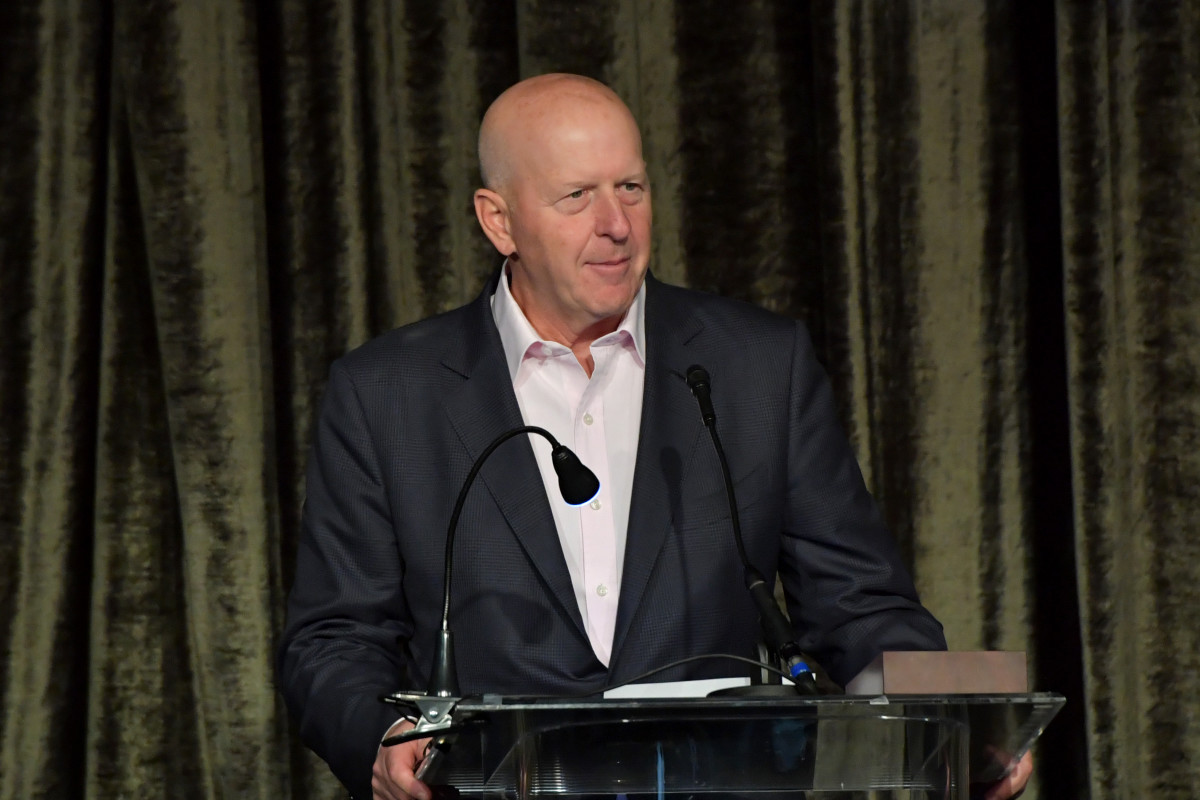Can Goldman Sachs regain its lost luster? 3 earnings takeaways
Here's what could be next for Goldman Sachs stock.

Goldman Sachs (GS) - Get Free Report ruled the roost among investment banks for 20 years prior to the financial crisis of 2008.
Since then it’s been nothing but problems for the vaunted institution that was once led by financial giants such as former Treasury Secretaries Robert Rubin and Henry Paulson.
After the financial crisis, Goldman’s renowned securities trading operation tanked, making analysts wonder whether its traders had just benefited from an unregulated environment. The bank also got caught up in a Malaysian investment scandal involving billions of dollars.
Most recently, Goldman’s venture into consumer banking has bit the dust, failing to gain traction with potential customers. The bank has closed most of the consumer operation after spending billions to get it off the ground.
So is Goldman now poised for recovery, or will it stay mired in the doldrums?
Goldman earnings provide mixed picture
The bank’s fourth-quarter profit, released Tuesday, registered $2.01 billion, or $5.48 per share, up 51% from a year ago and way above Wall Street’s consensus forecast of $3.51 per share. Revenue climbed 6.9% to $11.32 billion, beating analysts' forecasts of $10.8 billion.
Related: Goldman Sachs heavyweights forecast what's next for the stock market, economy
Equity trading revenue led the way in the fourth quarter, as stock prices surged. That revenue soared 26% to $2.61 billion, compared to expectations of an 8% increase.
Goldman’s asset- and wealth-management business also shined, as rising wealth among high-income families and institutions give the bank fertile fields to mine. That unit produced revenue of $4.39 billion, up 23% from a year earlier.
On the downside, however, investment banking fees fell 12% to $1.65 billion, as rising interest rates killed initial debt underwritings, public offerings and mergers & acquisitions.
In addition, fixed-income trading, which includes interest-rate products, currencies and commodities, posted revenue of $2.03 billion, down 24%. Goldman had trouble in the rates and currency areas.
Not surprisingly, Goldman Chief Executive David Solomon put a positive spin on the earnings report. “This was a year of execution for Goldman Sachs,” he said.
“With everything we achieved in 2023 coupled with our clear and simplified strategy, we have a much stronger platform for 2024.”
What the future holds for Goldman
Given the conflicting elements of the earnings report, what are the most important takeaways for Goldman?
More From Wall Street Analysts:
- Veteran fund manager picks favorite stocks for 2024
- Analyst who correctly predicted 8% mortgage rates has a new target
- Veteran fund money manager touts 'sleep-well-at-night' stocks
1. Trading will never be the same (in the foreseeable future anyway). It’s what fueled Goldman’s engine from the 1980s until the financial crisis. But it doesn’t appear that bank regulations will be eased anytime soon. In fact, we may be headed in the opposite direction. And Goldman’s traders haven’t delivered consistent performance in this environment.
2. Investment banking should rebound for the bank whenever the industry as a whole recovers. Goldman stands second only to mammoth JPMorgan Chase (JPM) - Get Free Report in investment banking fees. Goldman has consistently ranked at or near the top of the field over the past 40 years, and there is no reason for that to change.
3. The asset- and wealth-management sector can continue to grow, as people and institutions around the world continue to gain wealth that they need to invest. But Goldman may not have a lot of room to expand here, as the competition is intense from other top banks.
Bottom line: Goldman’s days of dominance are over (again, for the foreseeable future at least). There are just too many strong competitors – around the globe – and the regulatory environment is too difficult.
But the bank should remain one of the best in its field, as it builds on its strengths and continues to attract talented workers.
The author owns shares of Goldman Sachs.
What's Your Reaction?



























































